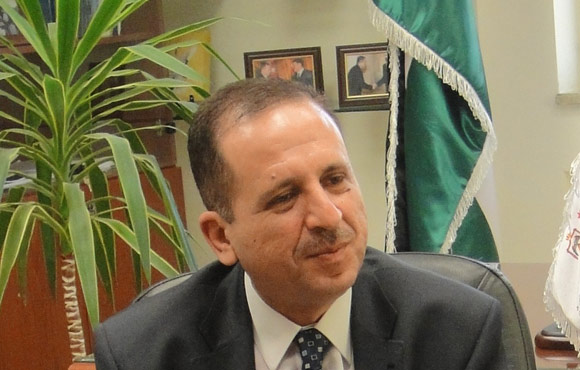Development Zones in Jordan
As the economy grows there is the potential to develop new zones in the country but there are also regional interests that we see from other investors worldwide.
Interview with Dr. Bilal Al-Bashir, Chief Commissioner of Development Zones Commission

According to the Economist, in spite of Jordan’s heavy reliance on foreign direct investment and the global liquidity problem, Jordan faired better than expected. How do you view the current business climate in Jordan and how is it compared to other neighboring countries?
An important feature of Jordan is its resilience in all aspects of life- especially politically, economically, and financially. In spite of the financial crisis we have maintained stable financial institutions and we are riding out the crisis in a good way. This reflects the credibility of the financial policies Jordan has historically assumed and also attests to the strong economic standing of the country overall.
Challenges persist with public deficit, how is the government tackling these issues?
Jordan’s government and public institutions show continuous capability to adapt to challenges and we have all of the means to address them. Currently I think what we are doing is great and in the upcoming years we will see the persistent issues in the country tackled and hopefully solved.
What are some of the advantages Jordan offers to international investors and what are the incentives companies have to bring their business to Jordan?
Most importantly Jordan is a stable country and our strategic location is also a perk because we see ourselves as an entry point to the Middle East. We also maintain several trade relationships with nations all over the world and this provides us with access to a huge market close to one billion in population. Jordan also has advantages in the region due to our educated workforce, developed infrastructure, and we are rich in historical, agricultural and natural resources. We have a market driven economy and are open to FDIs without restriction and we offer excellent tax benefits in addition to a friendly business environment.
How do you compete with other zones’ economy? What is your unique selling point?
Some of the zones are very isolated but in Jordan we are a developed economy zone with organic advantages. There is long-term sustainability in our development zones and we also have easy access to our trading partners in terms of trades and services. Jordan is also very livable and enjoys an excellent standard of living and this is a major advantage.
You currently have six development zones in your operations. What measures are you implementing to ensure continuing development in these zones?
Each zone offers comparative advantages that are complementary and offer opportunities for clustering and linkage with the larger economy. Two zones have value in terms of location for logistics and others have industrial advantages due to the presence of natural resources. Another zone, for example, has the potential to develop solar energy due to the sun and two other zones are for tourism due to their proximity to the Dead Sea. We also have zones in IT and business and these are quite young. We have been successful in attracting both domestic and foreign investment to these zones and there is a lot of potential for growth- the outlook is promising.
How would you characterize your strategy and what is your vision?
As the economy grows there is the potential to develop new zones in the country but there are also regional interests that we see from other investors worldwide that provide us with potential to develop new zones. The potential is there, the opportunity is real, but we want to take our time with the current six zones we have and ensure their development and growth first. We hope that the zones will be the engines of economic growth, distributed equally across Jordan. The government is looking at expanding the whole zone model to encompass the entire country and evaluating incentive packages to advance growth and investment.
How difficult is it to attract companies to Jordan or does the idea sell itself?
Of course we have to be proactive but we at DZC provide the services and organization for the projects thus reducing the bureacratic tape. Because the zoning development is relatively new relative to the recent economic crisis it is hard to tell if this has affected our business. Of course there is a slow down in foreign and domestic investment in Jordan but we are still maintaining growth numbers and interest from our investors in committing to our projects both new and old.
How do the zones here compare to Aqaba?
Both have an objective to attract foreign investment but they are still distinct. Aqaba is our only access to open seas so there are several port facilities and their objectives are to upgrade, expand, and support these facilities to improve on the supply chain that marine transportation offers to Jordan and in the region. There is also a regulatory environment for investment and the community due to the city size. We are regulating the business side and an enabling environment for the businesses and there is still a distinction between Aqaba and the development areas. The free zones are outside of the liberalized trade agreements and do not benefit. In the free zones also have issues in the national market but in our case we are fully integrated in the national consumption market.
What is your final message about Jordan?
Investors are happy to be here in Jordan for both business reasons and due to the culture and environment. All people want is a consistent, transparent, credible system to work with and Jordan can provide that.